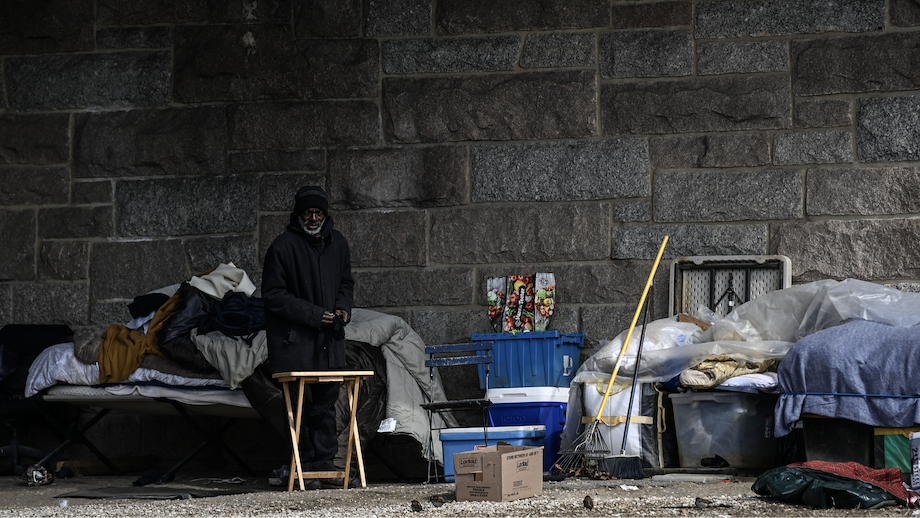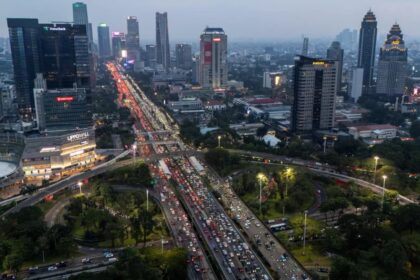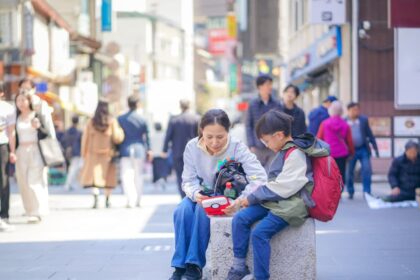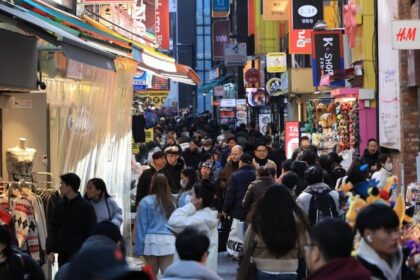China’s 2024 Human Rights Report on the United States: Accusations, Context, and the Global Debate
In August 2025, China’s State Council Information Office released its annual report on human rights violations in the United States, casting a harsh spotlight on America’s domestic and international record. The report, issued during a contentious U.S. election year, accuses the U.S. of deepening political strife, worsening economic inequality, and using human rights as a political tool. The document has triggered renewed debate over the credibility of human rights advocacy, the politicization of rights reporting, and the reciprocal criticisms exchanged between the world’s two largest economies.
- China’s 2024 Human Rights Report on the United States: Accusations, Context, and the Global Debate
- What Does China’s 2024 Report Accuse the U.S. Of?
- How Does the U.S. Respond? The State Department’s Own Reports
- Homelessness, Inequality, and Social Malaise in the U.S.
- Racial Discrimination and Minority Rights
- Women’s and Children’s Rights: International Criticism
- The Migrant Crisis and U.S. Border Policy
- Gun Violence and Police Brutality: Persistent Challenges
- International Implications: Human Rights as a Geopolitical Tool
- Comparing Human Rights Records: The U.S., China, and the Global Context
- In Summary
This article examines the main claims of China’s report, the broader context of U.S. human rights practices, the international response, and the implications for global human rights discourse.
What Does China’s 2024 Report Accuse the U.S. Of?
China’s 2024 report is a sweeping indictment of the U.S. political and social system. It claims that the American model is failing to protect the rights of its own citizens, let alone serve as a global standard. The report’s key accusations include:
- Political Dysfunction and Money in Politics: The report alleges that money dominates U.S. elections, with the 2024 cycle seeing spending exceed $15.9 billion. It claims that partisan interests and gerrymandering undermine voter rights, while recent Supreme Court decisions and state laws have restricted voting access for minorities, the elderly, and other vulnerable groups.
- Social Division and Political Violence: According to the report, 2024 saw heightened political violence and public disillusionment with democracy. Surveys cited by Chinese authorities suggest that many Americans believe their government serves the elite rather than the people.
- Economic Inequality and Poverty: The report highlights that over 40 million Americans live in poverty, with food insecurity rising and homelessness increasing by 18.1% from 2023. It criticizes the lack of universal healthcare and soaring medical costs, which have led to bankruptcies and deepened inequality.
- Gun Violence and Police Brutality: China’s report points to over 40,000 deaths from gun violence and more than 1,300 deaths from police shootings in 2024, arguing that the U.S. government has failed to address these persistent issues.
- Racial Discrimination: The document alleges that minorities face higher rates of violence, poverty, and health disparities, with systemic racism affecting African Americans, Asian Americans, and Native Americans.
- Women’s and Children’s Rights: The report criticizes the U.S. for not ratifying key international conventions on women’s and children’s rights, citing high rates of sexual harassment, domestic violence, and child labor.
- Migrant Crisis: The humanitarian situation at the U.S. border is described as worsening, with increased deaths, reports of torture, and missing children.
- Foreign Policy and Humanitarian Disasters: China accuses the U.S. of intensifying regional conflicts through military support and sanctions, particularly in the Middle East and Latin America.
The report concludes that U.S. politicians use human rights as a political tool, deviating from core values and principles, and calls for the U.S. to address its own issues before criticizing others.
Expert Commentary and Chinese Perspective
Chinese experts quoted in state media argue that the flaws in the U.S. judicial and political systems make these issues intractable. They claim that the U.S. has lost credibility as a global human rights advocate, and that the report aims to expose what they see as double standards and hypocrisy.
Chinese political analyst Lü Xiang commented, “The U.S. system is not designed to achieve social fairness. Persistent inequality and poverty may ultimately become uncontrollable.”
Such statements reflect a broader narrative in Chinese official discourse: that the U.S. model is fundamentally flawed and ill-suited to address the challenges it faces.
How Does the U.S. Respond? The State Department’s Own Reports
The U.S. government publishes its own annual human rights reports, which scrutinize the records of countries worldwide—including China. The 2024 Country Reports on Human Rights Practices, released by the U.S. State Department, detail abuses in China such as repression of Uyghurs and Tibetans, restrictions on freedom of expression, and transnational repression of dissidents.
However, the 2024 report has itself become a subject of controversy. Under the Trump administration, the State Department’s report was significantly scaled back. Key sections on women’s rights, LGBTQ+ issues, and government corruption were omitted or minimized, and the treatment of allied countries was softened. Critics argue that this undermines the report’s credibility and utility.
Human Rights Watch observed, “The Trump administration’s omission of key sections and manipulation of certain countries’ rights abuses degrade and politicize the 2025 US State Department human rights report. By undermining the credibility of the report, the administration puts human rights defenders at risk and weakens protections for asylum seekers.”
Independent analysts and former diplomats have warned that the politicization of human rights reporting—by both the U.S. and China—threatens the global human rights framework.
Reciprocal Criticism: The Cycle of Accusation
The exchange of human rights criticisms between China and the U.S. is not new. Each country’s annual reports serve as both documentation and diplomatic messaging. The U.S. highlights abuses in China, including in Xinjiang, Tibet, and Hong Kong, while China focuses on American social and political problems.
This reciprocal criticism often leads to accusations of hypocrisy and double standards. For example, when the U.S. State Department criticized Hong Kong’s new security laws in 2024, Beijing’s foreign ministry office in Hong Kong called the report “despicable” and accused the U.S. of interfering in China’s internal affairs.
A spokesperson for the Chinese foreign ministry office in Hong Kong stated, “The US was rehashing cases involving anti-China, destabilising forces in Hong Kong and openly supporting them. This fully exposes the US’s politicisation and instrumentalisation of human rights issues.”
Such exchanges underscore the geopolitical dimension of human rights advocacy, where reports are used as tools in broader strategic competition.
Homelessness, Inequality, and Social Malaise in the U.S.
One of the most prominent themes in China’s 2024 report is the worsening crisis of homelessness and economic inequality in the United States. According to the U.S. Department of Housing and Urban Development, homelessness in 2024 reached its highest level since records began, with tent cities and encampments becoming common in major cities.
Factors contributing to homelessness include unemployment, lack of affordable housing, and health problems. However, Chinese analysts argue that the root cause is systemic: the U.S. political and economic model, they claim, is not designed to achieve social fairness or address poverty effectively.
Benny Johnson, an American political commentator, described downtown Los Angeles as “filled with tent cities, filth, drugs, and broken lives,” illustrating how rampant homelessness has become an intractable problem for the U.S.
Rising inflation and stagnant wages have widened the wealth gap, delivering catastrophic blows to low- and middle-income families. Critics argue that U.S. government measures are often palliative, failing to address the underlying causes of poverty and inequality.
Racial Discrimination and Minority Rights
China’s report devotes significant attention to racial discrimination in the U.S., echoing findings from independent organizations. African Americans, Asian Americans, and Native Americans continue to face disparities in law enforcement, healthcare, education, and economic opportunity.
For example, African Americans are disproportionately affected by police violence and incarceration. Asian Americans have reported increased discrimination, particularly in the wake of the COVID-19 pandemic. Native Americans’ rights are continually violated, with persistent poverty and lack of access to essential services.
While the U.S. has made progress in some areas, such as civil rights legislation and affirmative action, critics argue that systemic racism remains deeply entrenched.
Women’s and Children’s Rights: International Criticism
The U.S. is one of the few countries that has not ratified the Convention on the Elimination of All Forms of Discrimination against Women (CEDAW) or the Convention on the Rights of the Child. China’s report highlights this fact, arguing that it leads to ongoing violations of women’s and children’s rights.
Issues cited include high rates of sexual harassment, domestic violence, lack of maternity care, and child labor. The omission of standalone sections on women’s rights in the 2024 U.S. State Department report has drawn criticism from advocacy groups, who see it as a deprioritization of gender-based issues.
The Migrant Crisis and U.S. Border Policy
China’s report describes the humanitarian crisis at the U.S. border as worsening, with increased deaths, reports of torture, and missing children. The U.S. has faced criticism from both domestic and international observers for its handling of asylum seekers and undocumented migrants.
Advocacy groups argue that policies such as family separation, prolonged detention, and deportation to dangerous countries violate international human rights standards. The 2024 State Department report’s omission of detailed sections on abuses in countries like El Salvador and Venezuela has raised concerns that the U.S. is downplaying risks faced by deportees.
Gun Violence and Police Brutality: Persistent Challenges
Gun violence remains a uniquely American problem, with over 40,000 deaths reported in 2024. Mass shootings, domestic violence, and suicides contribute to the toll. Despite widespread public support for gun control measures, legislative action remains stalled due to political polarization and lobbying by interest groups.
Police brutality is another persistent issue. More than 1,300 people died in police shootings in 2024, with minorities disproportionately affected. Calls for reform have led to some changes at the local level, but national legislation has struggled to gain traction.
International Implications: Human Rights as a Geopolitical Tool
The annual exchange of human rights reports between China and the U.S. reflects a broader trend: the use of human rights as a tool in international competition. Both countries accuse each other of hypocrisy and double standards, while seeking to shape global norms and institutions.
China has expanded its influence in international bodies such as the United Nations Human Rights Council, often using procedural tactics to limit the participation of independent NGOs and human rights defenders. According to a 2025 report by the International Service for Human Rights, China has become the top obstructionist member of the UN Committee on NGOs, using deferrals and other measures to silence critical voices.
The ISHR report notes, “China has led efforts to prevent independent NGOs from getting accredited to the UN, accessing UN premises, speaking at the Human Rights Council, or meeting diplomats. Beijing has systematically retaliated against those engaging with UN human rights bodies.”
This contest for influence has real-world consequences, as it can undermine the effectiveness of international human rights mechanisms and set harmful precedents for other authoritarian-leaning states.
Comparing Human Rights Records: The U.S., China, and the Global Context
While China’s report focuses on American shortcomings, the U.S. and its allies continue to highlight human rights abuses in China, particularly in Xinjiang, Tibet, and Hong Kong. The 2024 U.S. State Department report documents systematic repression of Uyghurs and other minorities, arbitrary detention, torture, and restrictions on freedom of expression and religion.
Independent organizations such as Human Rights Watch and the Congressional-Executive Commission on China corroborate these findings, noting that the Chinese government maintains strict control over civil society, censors dissent, and engages in transnational repression of critics abroad.
In Tibet, for example, the U.S. State Department describes ongoing enforced disappearances, arbitrary detention, and severe restrictions on religious and cultural expression. In Hong Kong, the enactment of new security laws in 2024 has led to further crackdowns on dissent and independent media.
These reciprocal reports and criticisms illustrate the complexity of the global human rights landscape, where no country is immune from scrutiny and all are subject to political pressures.
In Summary
- China’s 2024 human rights report accuses the U.S. of deepening political dysfunction, economic inequality, racial discrimination, and using human rights as a political tool.
- The U.S. State Department’s own 2024 report has been criticized for omissions and politicization, undermining its credibility as a global standard.
- Homelessness, gun violence, police brutality, and the migrant crisis remain persistent challenges in the U.S., with systemic causes and limited progress.
- Reciprocal human rights criticisms between China and the U.S. reflect broader geopolitical competition and the instrumentalization of rights advocacy.
- China’s growing influence in international human rights bodies has raised concerns about the marginalization of independent civil society voices.
- Independent organizations urge all governments to uphold universal human rights principles and resist the politicization of rights reporting.












